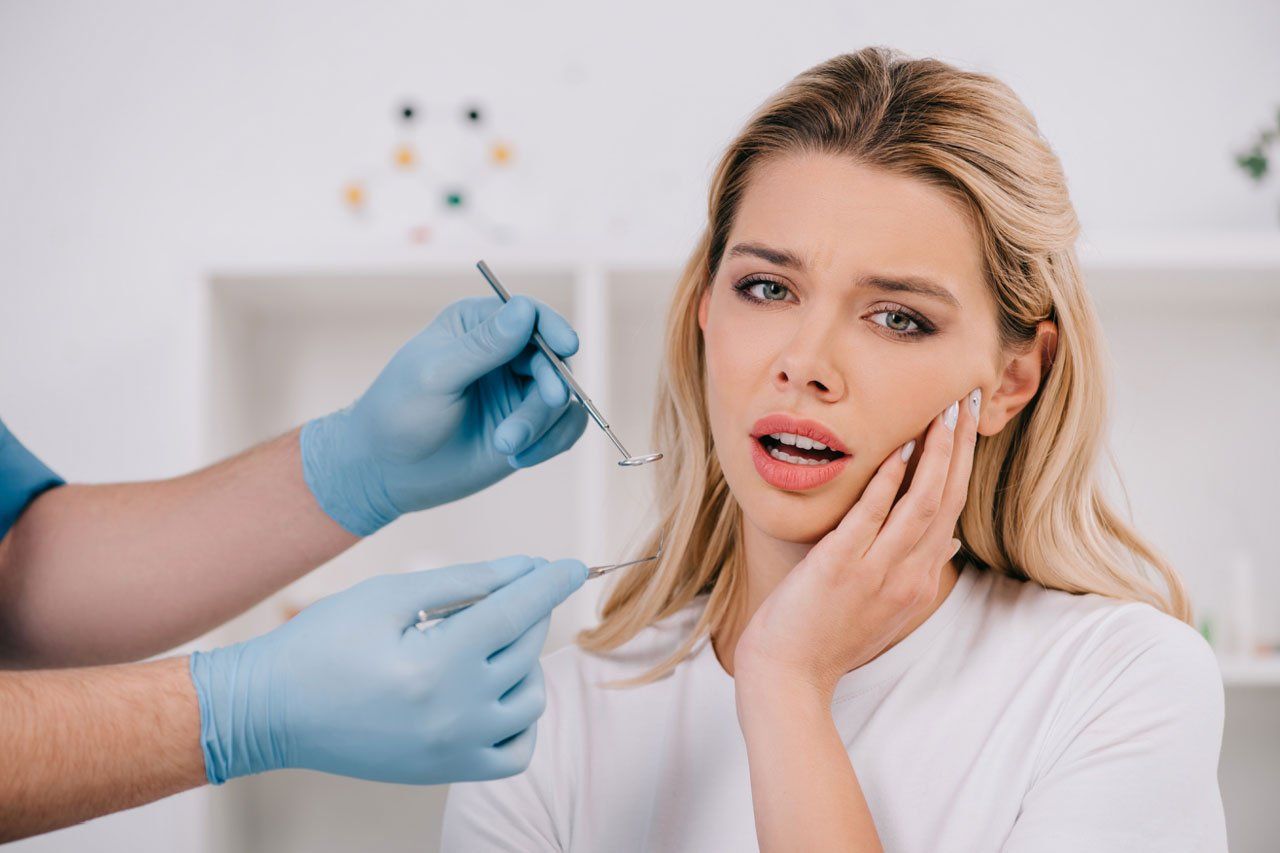7 Tips from Our Emergency Dentist in Richmond

Accidents can happen at any time. Just like accidents, dental emergencies can also happen suddenly. When a dental emergency occurs, knowing how to respond can help prevent further damage and discomfort and preserve the health of your teeth and gums. But what is considered a dental emergency?
A dental emergency usually involves an infection, tooth fracture, or tooth loss that requires rapid medical attention. Although pain is considered one of the symptoms of a dental emergency, it may not be present in some cases. Below are some examples of dental emergencies and seven tips on what to do when you have a dental emergency.
Examples of Dental Emergencies
Listed below are a few examples of dental emergencies.
- Pain in the tooth, jaw, or gum
- Continuous bleeding
- Gum swelling or infection
- Knocked out or fractured tooth
- Post-surgery treatment
What To Do During A Dental Emergency
Below are seven tips from our emergency dentist, in Richmond, that may assist you in responding to a dental emergency.
- Remain calm: When a dental emergency like a broken tooth occurs, panic and anxiety can easily set in. However, it's important to maintain your composure as you search for emergency dental care. Maintaining your composure during a dental emergency improves your ability to recall the advice given to you by our emergency dentist, Richmond on managing the dental emergency.
- Gently floss between teeth: Try to floss gently between your teeth if you experience dental pain. Small food particles frequently become lodged between teeth. When this occurs, your gums may become tender, and you may even experience tooth pain. Before contacting your emergency dental clinic in Richmond, observe if a piece of food comes out during flossing and wait to see if the tooth discomfort goes away. In the end, you might not require emergency dental care.
- Contact your emergency dental clinic immediately: Choosing to delay instead of immediately seeking treatment for a painful tooth increases the likelihood of your condition worsening. While your emergency dentist will do everything possible to save your tooth, waiting for too long before visiting your emergency dental clinic in Richmond can restrict the options available to your emergency dentist. For instance, dental cavities can be corrected with a simple dental filling. However, delaying treatment for dental caries (cavities) may necessitate an urgent root canal. When you have a dental emergency, contact your emergency dental clinic immediately.
- Ensure you pick up the tooth by the crown: Make sure you pick up the knocked-out tooth by the crown. The crown is the top of the tooth, while the roots are the part of the tooth usually covered by the gums. A tooth's roots should never be handled. Picking up a knocked-out tooth by the roots increases the risk of damaging vital cells that your emergency dentist will require to implant the tooth into its socket.
- Ensure that the tooth remains wet: Special care must be taken to preserve a knockedout tooth. It is important to ensure that the tooth remains moist. By ensuring your tooth remains moist, you'll be able to place the tooth in its socket gently. However, if you cannot place the tooth in its socket, we advise soaking it in milk. Out emergency dentist won't be able to place your tooth back into its socket if it becomes too dry.
- Allow someone else to drive: When you are anxious or in pain, it can be difficult to concentrate on driving. If you're experiencing a lot of pain, we advise having a friend or loved one drive you to your emergency dental clinic. By having someone else drive, you'll be able to concentrate on administering first aid while waiting to visit our emergency dentist.
- Learn how to prevent future dental emergencies: There are actions you can take to prevent dental emergencies from ever occurring. For instance, when participating in contact sports, there is a greater chance of getting hit in the mouth and requiring emergency dental care. You can protect your teeth by using a sports mouth guard. A sports mouth guard creates a barrier of protection over your top teeth and reduces the risk of having a knocked-out tooth.
Dental emergencies can happen at any time. Knowing how to respond during a dental emergency can help preserve your teeth and prevent additional discomfort. Discussed above are some tips to help you know what to do when you have a dental emergency. Get in touch with Glenside Dental today to speak with our emergency dentist Richmond.
